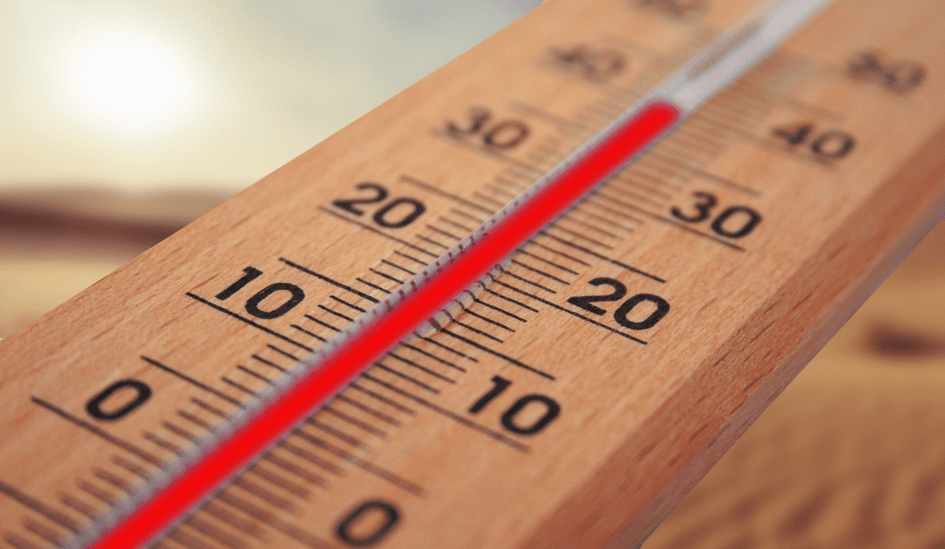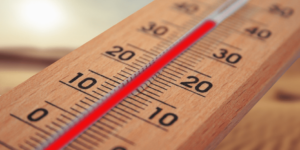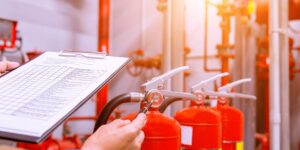Based on the forecasts of the National Meteorological Service, in view of the expected high average daily temperature and heat alerts during the summer days, the Occupational Safety and Health Department of the Ministry of National Economy calls the attention of all employers to the to the dangers of heat waves, as well as the employees necessary to protect your health and safety to take preventive measures.

The body's ability to regulate heat is affected by countless things, such as age, body weight, physical fitness, state of health, clothing, and nutrition. During heat waves, working puts more stress on the body, and even a healthy body can be subjected to extreme stress in warmer than average weather.
The sustained high daily average temperature and physical work cause excess heat production in the body, which increases the risk of heat damage (e.g. heat cramps, heat exhaustion, heat stroke). As a result of the heat, inattention, reduced reaction time, fatigue, wet, slippery hands can develop, which also increase the risk of workplace accidents. Heat waves can pose a particularly large and increasing health and safety risk for those working outdoors, as well as strong UV radiation. Their protection from the harmful effects of the weather is also important because they are limited in their choice of place and time of work.
Increased attention must be paid to the prevention of health damage caused by heat work, especially in the case of physical work performed outdoors in the hot sun (e.g. road construction, asphalting, agricultural activities):
- THE drinking water of a suitable temperature (14-16 °C) must be provided to compensate for fluid loss in the amount required by employees in compliance with hygiene requirements. Employees should be encouraged to drink a lot of water - approx. Drink a glass of cold water every 15-20 minutes, even if you don't feel thirsty - and avoid coffee, alcohol, drinks with high caffeine and sugar content, which can dehydrate the body. Minerals lost through sweating are recommended to be replaced with smaller meals during work breaks and rest periods.
- It must be ensured by work organization, to be regularly avoided during work rest period for inauguration. If possible, workers should spend their rest periods in a shady place that is cooler than the environment and in conditions with adequate seating.
- When working outdoors, you must pay attention to for the exchange of workers, i.e. the work must be organized in such a way that they alternately spend short periods of time in the hot sun and during critical times of the day (between 11 a.m. and 3 p.m.), if possible, work in a cooler, shaded workplace. Where possible, the outdoor work area should be shaded (e.g. by using a tent sheet or tarpaulin).
- In the first days of intense heat, it is recommended to provide employees with shorter work periods and longer breaks between work if possible.
- Employees working in a working time frame (e.g. 12-hour shifts) may be exposed to a particularly heavy load during the heat warning period, if they have to work on consecutive days and there is no possibility for their bodies to regenerate due to the heat at night. Although there is no specific legal requirement for work organization measures for employees working within the working time frame - during a heat alarm - due to the experience of the labor protection authority and employee complaints that have occurred in previous years, it is recommended to reschedule the work-rest schedule for the duration of the heat alarm with the involvement of the occupational health service, more often and the introduction of longer rest periods.
- Employees whenever possible carry out their tasks in light, light-colored and casual clothing, if this does not endanger safe work. It is recommended to supplement the prevention of heat exhaustion and heatstroke with other procedures (e.g. the use of a head protector covering/shading the back of the head or a wide-brimmed, well-ventilated hat, cooling face and hand washing with cold water).
- The nature of the work (e.g. light, medium or heavy physical work) and the general state of health and experience of the workers must also be taken into account when providing personal protective equipment, for which the opinion of a doctor from the occupational health service must also be sought. The additional load resulting from wearing work, protective clothing and other protective equipment must also be taken into account.
- In closed workplaces, the efficiency of the air-conditioning equipment and air-conditioning equipment used must be checked more often than usual, it is necessary to check - with the involvement of a specialist - their functionality according to their purpose, to ensure their regular technical maintenance, cleaning and disinfection. Improper setting, operation and lack of maintenance and cleaning of artificial ventilation and air conditioning equipment can be the root cause of health damage (e.g. cold, respiratory infections, etc.).
- The with volatile hazardous substances (e.g. organic solvents: acetone, toluene) occupational health and safety rules must be strictly followed for the activity carried out, as the high temperature increases the evaporation of certain chemical substances, as a result of which dangerous pollution of the workplace air can develop quite quickly, which in the absence of adequate protection (technical and/or personal protection) can cause the employee to feel sick or even lose consciousness.
Solvent-soaked materials and waste must be stored closed and separated.
- Always be mobile phone in the work area, if you need to call for help. Recommended among employees appoint a person to supervise compliance with preventive measures (e.g. adequate fluid replacement, regular rest in a cooler, shaded area), as well as the occurrence of any complaints, the need for first aid or medical care.
- Workers assigned to first aid must also be trained to recognize and treat the symptoms of heatstroke and excessive stress caused by heat (extremely red and hot face, rapid heartbeat, headache, nausea, malaise, in more severe cases, fainting, loss of consciousness, etc.). It must be ensured that all employees know which of them is the one who has been professionally trained to provide appropriate first aid if necessary.
source: www.ommf.gov.hu





